Re-Posted – Niger’s Farming Crisis
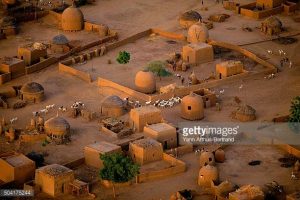
Below are systemic steps that can be taken to improve the Quality of Life in Niger, by using web technologies in a way that empowers investors, managers, and workers.
Since the post below from August 2005, Niger’s president extended the duration of his presidency, there were subsequent protests and eventually a military coup.
The military honored its commitment to hold elections and carried through on its promise. The elections were judged to be free and fair by the international community, and Niger is now a democratic, multi-party state.
The economy of Niger centers on subsistence crops, livestock, and some of the world’s largest uranium deposits. Drought cycles, desertification, a 2.9% population growth rate, and the drop in world demand for uranium have undercut the economy.
Currently Niger’s per-capita GDP (PPP)$ is at $1,159 USD, compared to US GDP (PPP) of $57,467, or Jamaica’s GDP (PPP) of $9,297.
https://en.wikipedia.org/wiki/Niger

Re-Post from August 2005
The African country of Niger is currently undergoing a crisis. The population is faced with the impending onslaught of mass starvation. According to an article on the front page of the New York Times on August 5, 2005, 3.6 million farmers are at risk in this crisis, with 1.2 million being described as “extremely vulnerable” to food shortages, and with estimates of 874,000 of these described as urgently needing free food.
The causes are complex and varied, but essentially amount to the lack of food and the ability to distribute what food remains to the people who need it. Last November the conditions leading to this crisis were identified, and the United Nations determined then that Niger needed 70,000 tons of food aid — of which less than 7,000 tons were received by May. The United Nations also determined that $3 million were needed for distribution to the 400,000 most vulnerable farmers, of which $323,000 was received ( from Luxembourg ).
The economic factors that conspire to create the current crisis in Niger are also common to many other African countries, and are contributing to depressed and dangerous conditions all over the continent.
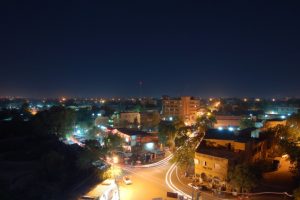
The solutions we propose here for addressing the crisis in Niger would also apply to the other African countries, and would apply to many depressed Black communities and other communites in the United States and all over the world.
Organizations like the United Nations and the World Bank and the nations that sponsor them obviously deserve alot of credit for their dedication in addressing problems such as this over the last more than 60 years. During that time, these organizations have grown more and more intelligent about creating conditions to promote economic development all over Africa that would be self-sustaining so that further external intervention would eventually be unnecessary.
The problem has been that the projects that have been sponsored haven’t economically enabled and ignited large enough numbers of individuals in these countries to make the economic development self-sustaining.
The next step will be to invest in ways that are less directly controlled by these and similar organizations and companies.
It’s much, much harder to be efficient when developing someone else’s economy. The risks and trade-offs to the organization aren’t quite the same as the risks to the individual working in that economy. Just as in the comparison between capitalism and communism, it’s easier for the individual in a given economy to determine how hard it will be to use investment money to expand a farm, or start a factory, and how much the rest of a given community might benefit from that effort when others in the community are investing in their own farms, factories, and service businesses.
It’s more efficient to invest money as an investment partner with individuals and companies in the developing economy instead. It’s more efficient to provide direction and smaller investments to a much larger number of individuals and companies — but at a level that can be sustained by negotiating a fee of 10-15% of profit to cover expenses and grow the investment. If the individual investments can be grown, then they can be sustained and the larger effort can be grown.
Also, this approach helps ignite the individuals’ excitement in the venture to a greater degree than fewer, larger projects would. This individual excitement, compounded throughout the developing economy, will create synergistic effects as well ( as is seen in India today ).
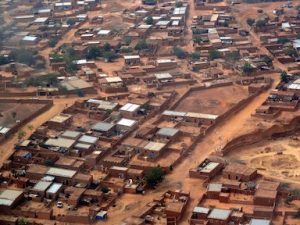
Niamey from the sky By Jean Rebiffé
The head of an external organization’s project to build a wholesale distribution company in Niger, for example, could NEVER be as motivated in this effort as could the Nigeran owner of a business startup entering into a partnership with the project manager from that same external organization. The Nigeran owner would have a much greater feeling of opportunity having been a member of that same depressed economy.
For this type of investment to be possible, Niger in this case would have to have an infrastructure that:
Enables people to form businesses.
Gives people access to up-to-date information about what products are needed by consumers in the economy now and in the near future.
Enables external organizations and especially Nigeran citizens to invest in companies in Niger.
Gives people the ability to process all this information and make necessary business judgements.
For a population with Niger’s existing literary rate to achieve this State of Growth, the developing company will have to have a culture of human resources growth as well. One approach would be to standardize on a 42-hour work week, with 4 hours / week as a mandatory set-aside for employee academic growth ( which can be serviced by other companies in a brand new service industry ). Unless the government implements a mandatory set-aside for employee growth, these companies will face pressures to use this time to produce instead, which would impede progress.
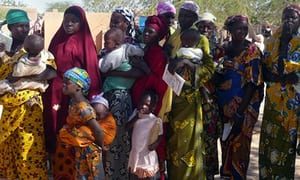
Finally, as a related note, we need to re-think the role that NGOs would optimally play in this effort. The Non-Governmental Organizations will be more effective if they can maintain a culture of positive engagement — making information available where it might not have been, proposing solutions to problems, etc. The NGOs should take care not to drain away the positive energy of their members by allowing negative-oriented climates to take hold.
It might be that we also need an NGO to serve as an NGO monitor — publishing the positive results of other NGOs and of the United Nations and the World Bank, as well as publishing lessons learned from any negative outcomes. Complaining about negative outcomes to too great an extent depletes energy and prevents synergy and thereby reduces efficiency.
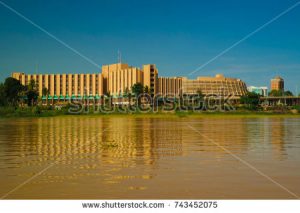
Next steps at this point would be to engage leaders within the United Nations, the World Bank, the Nigerien government, and the Nigerien business community to help put together an economic engine that will operate along these lines. We would need to simultaneously increase the visibility of investment opportunities along these lines within the Black Community and other communities in the United States.
Please share this page, give your comments below, and discuss with your friends.


Leave a Reply